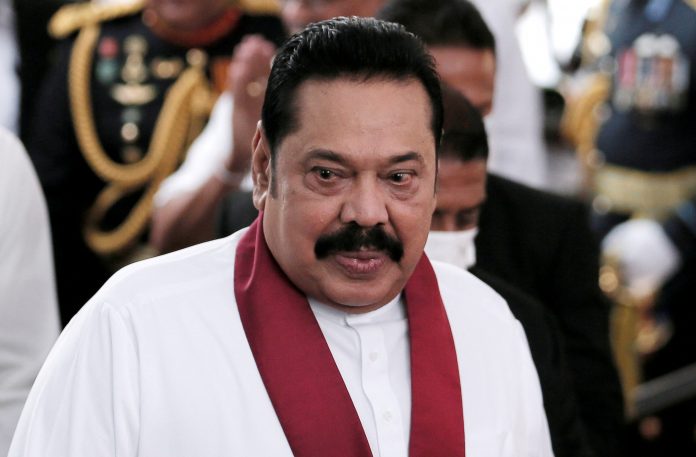Colombo: Sri Lankan Prime Minister Mahinda Rajapaksa resigned on Monday amid unprecedented economic turmoil, hours after his supporters attacked anti-government protesters outside President Gotabaya Rajapaksa’s office, leaving at least 130 people injured and prompting authorities to impose a nationwide curfew and deploy army troops in the capital.
Prime Minister Mahinda, 76, sent his resignation letter to the President Gotabaya Rajapaksa after violent scenes were witnessed in Colombo.
“Effective immediately I have tendered my resignation as Prime Minister to the President,” Mahinda tweeted. At least two Cabinet ministers have also announced their resignations.
The violence occurred as pressure mounted on the embattled government led by his younger brother and President Gotabaya to form an interim administration to overcome the worst economic crisis facing the country. Curfew was imposed islandwide with immediate effect until further notice, a police spokesperson was quoted as saying by the local media.
A military contingent was deployed to the protest site to assist law enforcement after clashes between pro-government and protestors at MynaGoGama and GotaGoGama protest sites left around 130 people injured.
The defence secretary has urged public support to maintain peace in the country, while three-armed forces have been called in to assist police for public security. Leave for all police personnel were cancelled until further notice.
Sri Lanka is currently in the throes of unprecedented economic turmoil since its independence from Britain in 1948. The crisis is caused in part by a lack of foreign currency, which has meant that the country cannot afford to pay for imports of staple foods and fuel, leading to acute shortages and very high prices.
Thousands of demonstrators have hit the streets across Sri Lanka since April 9 seeking resignation of President Gotabaya and Prime Minister Mahinda, as the government ran out of money for vital imports; prices of essential commodities have skyrocketed and there are acute shortages in fuel, medicines and electricity supply.
Earlier, President Gotabaya and Prime Minister Mahinda had appealed to the people to exercise restraint and remember that violence only begets violence, saying the economic crisis needs an economic solution which his government is committed to resolving.
The ‘MainaGoGama’ protest site was set up demanding the resignation of Prime Minister Mahinda. Peaceful protesters had been camped here for 31 days, demanding the resignation of the president.
Hundreds of supporters of the Prime Minister were brought in buses while some others marched to the Temple Trees to show support to the premier against the call for his resignation, the Colombo Page newspaper reported. The demonstrators insisted that Rajapaksa remain in office and not resign.
In a special Cabinet meeting on Friday, President Gotabaya Rajapaksa declared a state of emergency with effect from Friday midnight. This is the second time that an emergency was declared in Sri Lanka in just over a month as the island nation was in the grip of the worst economic crisis.


